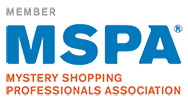Restaurant servers can exploit coupons in various ways to commit theft.
By: Doug Rector ~
3/18/2025
Here are some common methods:
- Pocketing the Discounted Amount
- A server applies a coupon to a customer’s bill but charges them full price. They then pocket the difference.
- Example: A $20 coupon is applied, but the customer still pays full price in cash. The server keeps the $20.
- Using Unredeemed Coupons
- If a restaurant has a lenient coupon policy, servers might collect unused or discarded coupons and apply them to cash-paying customers’ bills.
- They then take the discount amount for themselves.
- Fake Coupon Scams
- Servers generate or use expired/ineligible coupons to reduce a bill and pocket the difference.
- Example: A server applies a discount from an expired promotion and keeps the extra cash.
- Fraudulent Void Transactions
- The server rings up an order, applies a coupon, and then voids the check after the customer leaves.
- They keep the payment, making it appear as if the order was canceled.
- Coupon Stacking
- Some restaurants allow multiple coupons on a single check. A dishonest server might apply multiple discounts to a bill and keep the extra cash.
- Reusing Coupons
- Digital or printed coupons can sometimes be used multiple times.
- A server might apply the same coupon code to multiple checks, keeping the savings.
- Overcharging and "Refunding" Themselves
- A server overcharges a customer, later "corrects" it by applying a coupon to the check, and takes the extra money.
How Restaurants Can Prevent This
- Require manager approval for coupon use.
- Track coupon redemptions in the POS system.
- Audit cash transactions regularly.
- Limit coupon stacking and set expiration controls.
Would you like help drafting policies to prevent coupon fraud in your restaurant?
Mystery Shopping Programs
By: Doug Rector ~
2/28/2025
Now is a great time for restaurants to implement a mystery shopping program because it provides critical insights into customer experience, operational efficiency, and brand reputation—at a time when every detail matters. Here’s why:
- Customer Expectations Are Higher Than Ever
- With rising menu prices, customers expect exceptional service, food quality, and overall experience. A mystery shopping program helps identify inconsistencies that could turn customers away.
- Competitive Edge in a Struggling Industry
- Many restaurants are facing financial difficulties. A well-executed mystery shopping program ensures that your restaurant stands out by offering superior service, which can lead to customer loyalty and positive word-of-mouth.
- Cost Control & Maximizing Revenue
- Mystery shoppers can assess portion sizes, food waste, and efficiency in service, helping restaurants cut unnecessary costs while ensuring customers feel they’re getting value for their money.
- Identifying Staff Training Needs
- With high employee turnover in the hospitality industry, ensuring consistent training is crucial. Mystery shopping provides real-time feedback on staff performance, allowing for targeted improvements.
- Enhancing Online Reputation
- In an era where online reviews can make or break a business, mystery shopping programs help restaurants proactively address issues before they turn into negative Yelp or Google reviews.
- Boosting Customer Retention
- Acquiring a new customer is more expensive than retaining an existing one. Mystery shopping programs help restaurants fine-tune their service to keep customers returning, even in a tough economy.
- Data-Driven Decision Making
- With increased costs, restaurant owners need to make smarter business decisions. A mystery shopping program provides actionable data to refine operations, pricing strategies, and overall guest satisfaction.
By implementing a mystery shopping program now, restaurants can ensure that every customer visit meets high standards, ultimately leading to better reviews, repeat business, and higher revenue despite economic challenges.
 Doug Rector
Doug Rector





